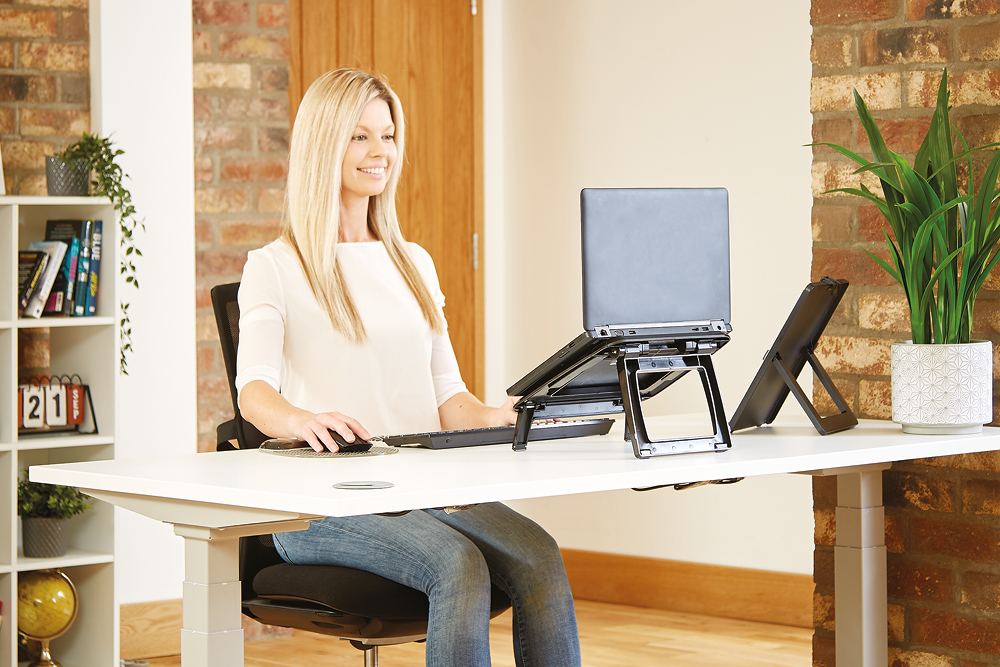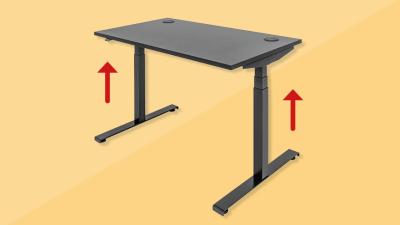
According to the Office for National Statistics (ONS) 14% of people now work from home exclusively in the UK, while the proportion of people hybrid working has risen from 13% to 24%. Some home workers are part of employed teams and some are freelancers working solo. So, lots of us are doing it, but are we enjoying working from home?
For some this shift in working circumstances has been enforced, while for others it has been a lifestyle choice. Whatever the reason for the change, in a recent survey of over 700 professional people working from home conducted by ergonomics experts Posturite, as many as 34% of respondents said they found working from home lonely.
The same homeworker survey found 10% of people didn’t feel connected to colleagues while working from home, 54% felt somewhat connected, and only 36% felt well connected.
Factors affecting loneliness while working remotely
As a freelancer myself, I understand the pros and cons of working from home. I enjoy it because it suits my lifestyle, eases the pressure of the work and family life balance, and is the most productive environment for me. But I completely appreciate this won’t be the case for everyone and if I’m honest, there are days I find it hard too.
There are several factors affecting how well people work from home and actually, your home office setup can be a big part of working from home enjoyment. We’ll look at this one more later but in addition to this, your personality is another significant factor affecting how well you get on working from home, as highlighted by a respondent in the Posturite homeworker survey: “I’m lucky being an extreme introvert and feel really comfortable on my own.” On the flip side, another respondent said: “I miss office camaraderie. I do not take to social networking; I prefer face-to-face meetings.”
Some people are genuinely more productive while working from home, while others find it harder to concentrate when they’re on their own. If you feel like you are providing value, you are less likely to feel lonely. For example, another respondent in the survey about working from home who said they didn’t feel lonely commented: “I am far more productive as there are fewer interruptions.” While a different respondent who had answered yes to the question: ‘Do you find working from home at all lonely?’ stated: “Sometimes, meaning it can be hard to keep motivated.”
The tasks you’re undertaking will make a big difference; those requiring focus will often be a good fit for working at home and those who need stimulation or others input will be more difficult. Taking inspiration from the principles of ergonomics, it’s important to do the right task in the right environment.
Mental health considerations for employees working from home

Employers have as much responsibility to offer a duty of care to you working off-site, as they do for those working onsite. A mindful working culture should be companywide regardless of location. In fact, with the shift towards a more significant WFH culture, staying on top of loneliness for remote workers is now a key consideration for employers.
Nick Weston, CCO at software company Lilli says “I schedule regular virtual coffees with people so we can just chat. We also have ‘Feel Good Friday’ each week someone does a talk or quiz for around 30 minutes at 1pm. All on the call. No work chat allowed.” These friendly virtual meetups shouldn’t just be a relic of lockdowns.
According to the Health and Safety Executive, stress, depression, and anxiety at work continue to rise, and as we have seen, remote workers are not exempt from this. There may well be a large proportion of people working from home that are more susceptible because they are working alone. There are some tips for both employees and employers on how to manage mental health issues at work here, but for now let’s look at some ways to address loneliness for those who WFH.
Six top tips to combat loneliness while working from home
1. Consider working for a period outside of the home.
Whether you opt for a coffee shop or a local co-working space, working outside of your home setting with other people around you could be a great way to feel part of a community. Even if you don’t talk to anyone else while you’re out, simply being in a busy environment can be helpful.

2. Take breaks from your desk.
Short breaks and moving around while working from home are brilliant for your mental and physical health. These breaks from work often happen naturally when you’re in the workplace when you make a coffee, chat by the water cooler, or have a discussion in the corridor, but there is a tendency at home to sit in front of the computer and stay there. Do avoid this, as moving around and breaks are very important for health and productivity! Many aches and pains creep up when we sit down for too long. And if you know you’re the sort of person that needs social interaction, perhaps ask a neighbour in the same situation if they’d like to have a coffee with you.
Wendy from Essex contributed her approaches to a Twitter discussion about remote workers experiencing isolation: “I make sure to see friends for coffee or a walk when work’s less busy, and then work in evenings to make up the time. I’m also a Volunteer Driver for a local community transport scheme, so do occasional half-hour trips to break up the day.”
3. Make plans after work, particularly when you feel isolated.
I personally find some days harder than others, so if you find yourself struggling on a certain day, try to arrange to see friends or family after work or take a sociable exercise class. You can use the NHS Fitness Activity Finder here. Knowing you have something in place for the end of the day can help with the feeling of loneliness during work hours.

4. Ensure your home office promotes wellness.
You may not have considered this before, but how does your home workspace make you feel? Are you excited to get started in the morning? Does the sight of your workstation make you feel motivated and put you in the right headspace to work? Or does it fill you with dread because you know in an hour or two your neck and back will be aching? Working from home should not mean a compromise in comfort. Posturite has produced a great guide to healthy working from home but needless to say the ergonomic set up of your home workspace can make a surprising difference. Regardless of how much space you have – whether you have an entire office, or a multi-use desk in the corner of a room, there are solutions available to support you in good positions and make you more comfortable, and in turn more productive. All of which can help you to feel like a more worthwhile colleague or supplier, and therefore less lonely.
By the way, the woman in the photo at the top of this blog could definitely improve her wellbeing by using a laptop stand!
5. Join groups within your organisation, or online communities.
Just because you work at home or are hybrid working, doesn’t mean you aren’t welcome in your work community anymore. If there are social events online, or physical events for team building for example, take advantage of them. Maybe you could fundraise for a charity together?
Even if you’re working alone as a freelancer, there are so many online communities now to support people who WFH (work from home). Search your social media channels for groups in your area geographically, or professionally, or perform a simple search for online communities in your area.
6. Use video calls and phone calls to communicate with your team.
When you’re feeling lonely at home, communicating via messaging apps and emails alone simply won’t cut it. Video calls or even phone calls offer the two-way interaction a lot of people crave. Even if your colleagues don’t offer it as an option, why don’t you suggest it? They may be really grateful if they’re feeling lonely too.
Some people also find that having a pet can genuinely provide a level of comfort and company that can help prevent loneliness at home. But! This last idea comes with a warning. Only get a pet if you’re sure you can manage them for the long-term – a dog is for life, not just a quick fix for a WFH crisis! As well as the fact you have company in the house all day, owning a dog particularly gets you out of the house and talking to other dog owners. There are lots of other reasons dog ownership or owning any kind of pet can help while you’re working from home, but do think carefully about the long-term commitment involved.
No-one is immune to feeling lonely

Working from home is not for everyone. For some extraverts no amount of online interaction or working from a coffee shop will be enough. For the introverts among us, it’s a dream come true. Whatever your thoughts on WFH, no-one is immune to feeling lonely, whether you experience the feeling once a day, once a week, or once every 6 months. Hopefully the advice in this article will help you achieve the best of both worlds by realising a better work/life balance, but if you’re really struggling, do make sure you seek help from a friend, family member, colleague, or your employer.
Read next:












